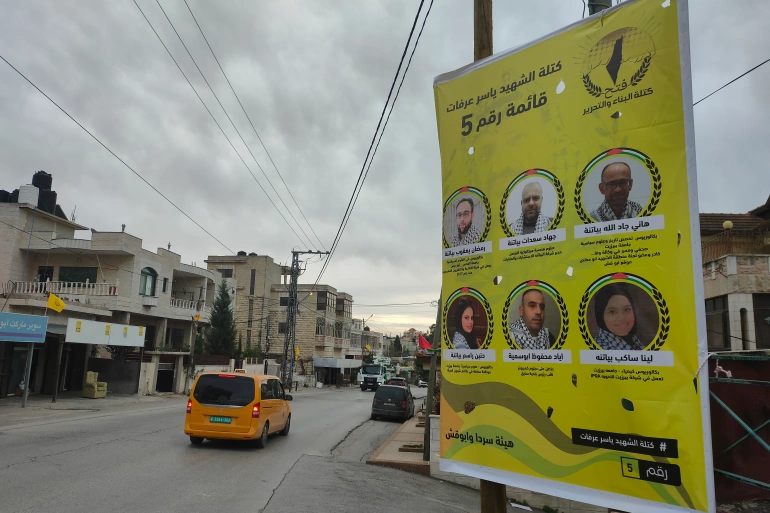
Ramallah, occupied West Bank – Palestinians living in rural areas voted in the first phase of municipal elections in the Israeli-occupied West Bank.
Voting on Saturday took place in 154 villages and local councils located in the West Bank, and polling stations closed at 7pm local time (21:00 GMT). No ballots, however, were cast, in more than 220 other councils, either because only one list is competing or no lists have been submitted.
Larger constituencies, including towns and cities in the West Bank with about 70 percent of total voters, will go to polls in the second phase, scheduled to be held on March 26 next year.
Political parties and civil society groups have criticised the Fatah-run Palestinian Authority (PA) for splitting the local elections, which followed another heavily criticised decision to postpone long-awaited parliamentary and presidential elections.
Hamas announced a boycott of Saturday’s local elections over the moves, insisting that polls at the national level should be held.
The political movement has been the de facto ruler in the besieged Gaza Strip since 2007 after it defeated Fatah in parliamentary elections. Fatah was driven out of the Strip as it attempted a preemptive coup which resulted in several weeks of violent fighting. The two parties have ruled the Gaza Strip and the West Bank respectively ever since.
Municipal elections were previously held in 2012 and 2017 in the West Bank, but not in the Gaza Strip, as Hamas boycotted the elections over divisions between the two parties.
Aref Jaffal, director of the Palestine-based Arab World Democracy and Electoral Monitor (Al-Marsad), said the PA “diluted the importance and power” of this year’s local elections by holding them in two phases – a move he branded “definitely political” that showcased a lack of appetite for real reforms and would result in the entrenchment of Fatah’s divisions with Hamas.
Local councils are responsible for basic services but do not pass legislation or deal with national politics.
The electoral system for local bodies operates on the model of proportional representation based on the council’s size. Nominations are carried out through closed electoral lists in which the names of the candidates do not appear on the ballot paper.
While most lists are assembled along party lines, independent ones can also run.
Jaffal said most small councils nominate only one party-based list, which is then automatically elected – also known as winning by acclamation.
While the 154 localities voting on Saturday have put forward more than one list, there will be no elections in at least 162 other local bodies in where only one list – mostly of Fatah – was nominated, and in some 60 other localities where no lists were put forward.
“The small councils were chosen in the first phase because they are controlled by families, and the alliance between these families and the Fatah party leads to them winning the majority of votes,” Jaffal told Al Jazeera.
In light of the absence of multiple partiescompeting, Jaffal said the larger, more influential families in villages decide who will be on the list. “This will reflect on any general elections, where the stronger families will try to interfere in the electoral system, and this represents a threat to democracy,” he added.
Fatah spokesman Mounir al-Jaghoub, however, rejected allegations his party was trying to control the elections and defended the decision to hold them in two phases.
“The reason behind postponing the larger municipalities is to allow time for talks with Hamas with regards to holding elections in the municipalities of the Gaza Strip during the second phase of the local elections in March 2022,” al-Jaghoub told Al Jazeera.
“These elections are general, and anyone can run. No one has been prevented from running,” he said, citing Qabalan village in Nablus, where “Hamas is taking part in the municipal elections through one of its candidates who had previously run in the Legislative Council elections”.
